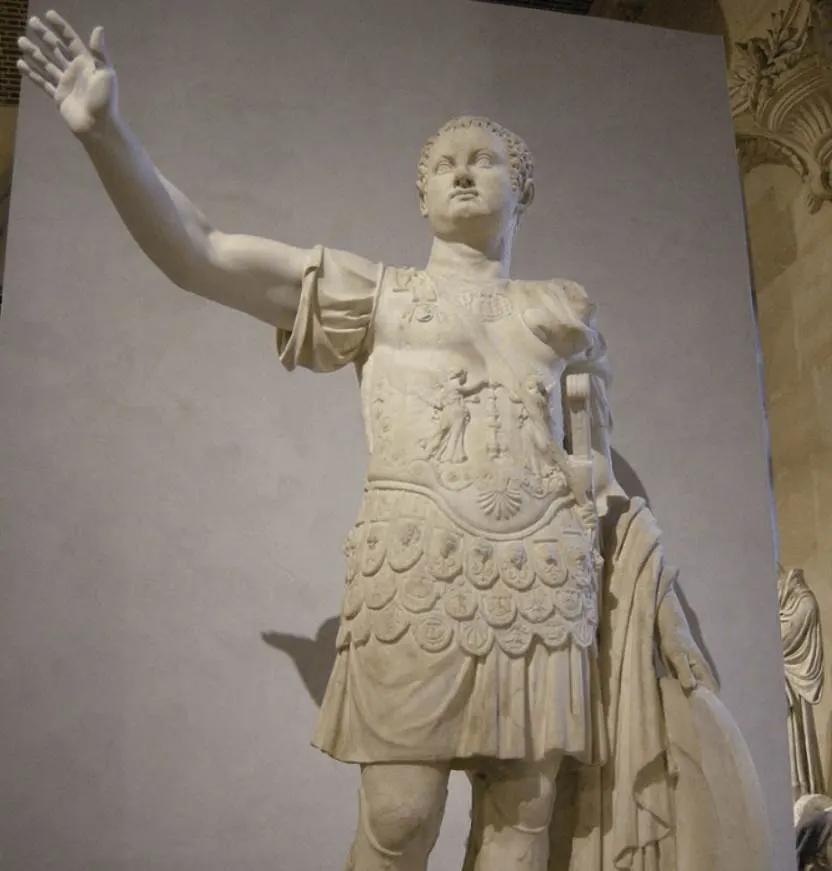Nobody in the family of Titus Caesar Vespasianus could have ever imagined that they would become the rulers of the Roman Empire, let alone start a dynasty. Yet, when Vespasian was declared Emperor on July 1, 69 A.D., this unthinkable event happened
The death of the infamous Emperor Nero in the year 68 A.D., who didn’t have an heir, was followed by the “Year of the 4 Emperors,” a year that almost brought the Empire to the brink of collapse. Multiple power-hungry figures threw all their cards on the table to claim the throne.
Vespasian was the unlikely winner, and in this post, you’ll discover the ultimate list of facts about Titus, his son who took over the role of his father to become Emperor of the Roman Empire.
1. Titus was born in a humble family
Titus was born into a humble family of mule breeders. His father was Vespasian who was nicknamed the “Muleteer” and gradually increased his status as he grew his political career.
His father held the offices of quaestor, aedile, and praetor. He eventually became consul of Africa in the year 51 A.D., before being tossed aside.
Titus was born on December 30 of the year 39 A.D. and was Vespasian’s oldest son. He started his own military career with campaigns in Germania and Britannia, where his father gained respect during the Roman Invasion of Britain in 43 A.D.
2. He became famous in Judaea
Vespasian’s chance came again when the Jewish revolt broke out in the year 66 A.D. Because he was considered to be one of the best generals in the Roman army, Vespasian was sent to Judaea together with his son Titus to stop the rebellion.
Their progress was swift and brutal. Entire cities and villages were burned to the ground and the population was massacred. 60,000 Roman soldiers conquered Galilee and by the year 68, the entire coast and northern part of Judaea were under control.
Vespasian and Titus became famous for their victories in Judaea and for putting an end to the Jewish revolt.
3. He was in charge when Jerusalem was sacked

The final event during the Jewish Revolt was the Siege of Jerusalem. The biggest city of Judaea was the final place of resistance of the Jews who were involved in a bitter civil war among themselves as well.
Three Legions surrounded the walled city and one by one the lines of defense were broken. The result was the destruction of the city and the massacre of most of the remaining citizens, with nearly 100,000 people being enslaved as well.
For Titus, who was in charge of the army during the siege, this was a big victory that made him one of the most famous generals in Rome. For the Empire, this was important too as they were able to loot the entire city, including the famous Temple of Jerusalem on Temple Mount.
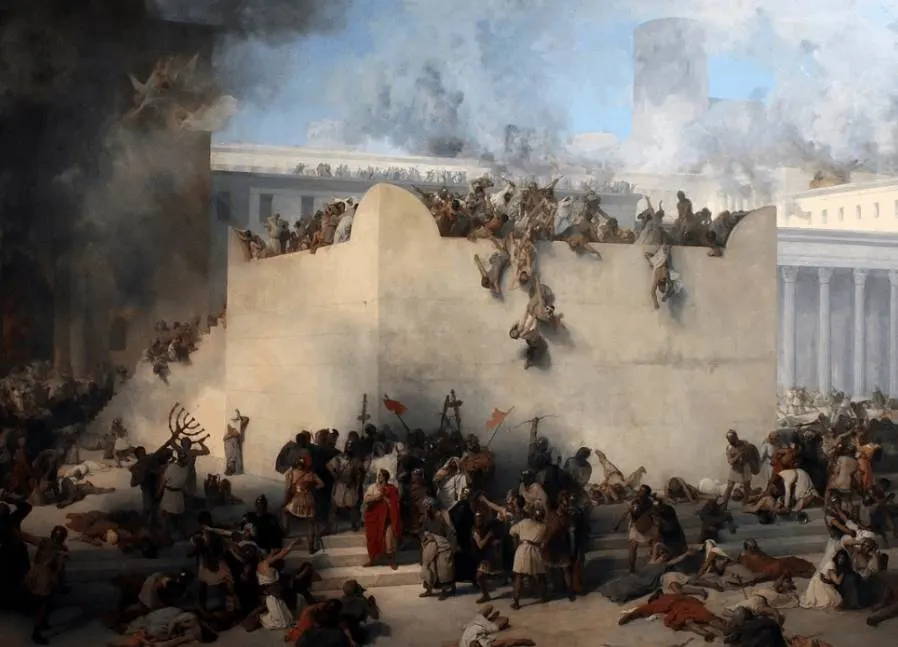
4. His father became Emperor of Rome in 69 A.D.
It was the year 68 A.D. when madman Emperor Nero killed himself after being sentenced to death by his own Senate, who subsequently declared Galba, who was stationed in modern-day Spain, as the new Emperor.
Titus was sent out by Vespasian to greet the new Emperor, but before he reached Rome, he learned that Galba had been murdered and Otho and Vitellius were involved in a bitter fight for power.
Titus returned to join Vespasian in Judaea and when the news came that Otho had committed suicide after losing a battle with Vitellius, Vespasian was declared Emperor on July 1, 69 A.D. and had the support of all the most important people in Rome, including the army.
This marked the end of the “Year of the 4 Emperors.” Vespasian was officially declared emperor by the Roman Senate on December 21, 69 A.D., and Titus became his official heir.
5. Titus kept busy during his father’s reign
Vespasian would be a great Emperor, an old-school Roman who had seen every rank in the Roman Army and who had seen many successes, including in Britannia and Judaea.
During the 10 years that his father ruled the Empire, Titus would be consul 7 times and serve as his official secretary.
One of the most important facts about Titus was that he used fear tactics to avoid his father being overthrown. Suspected traitors were executed on the spot under his command.
6. He once had a love affair with a Jewish queen
One of the most remarkable facts about Titus was that during his slaughter campaign in Judaea, he actually started an affair with the queen consort of the Herodian Dynasty named Berenice.
Even though the Herodians had shown open support for Vespasian and even supported his bid for power, the Romans were quite wary about this affair. As the people mocking and judging the relationship grew in numbers, Titus gave in to the pressure and sent her back home.
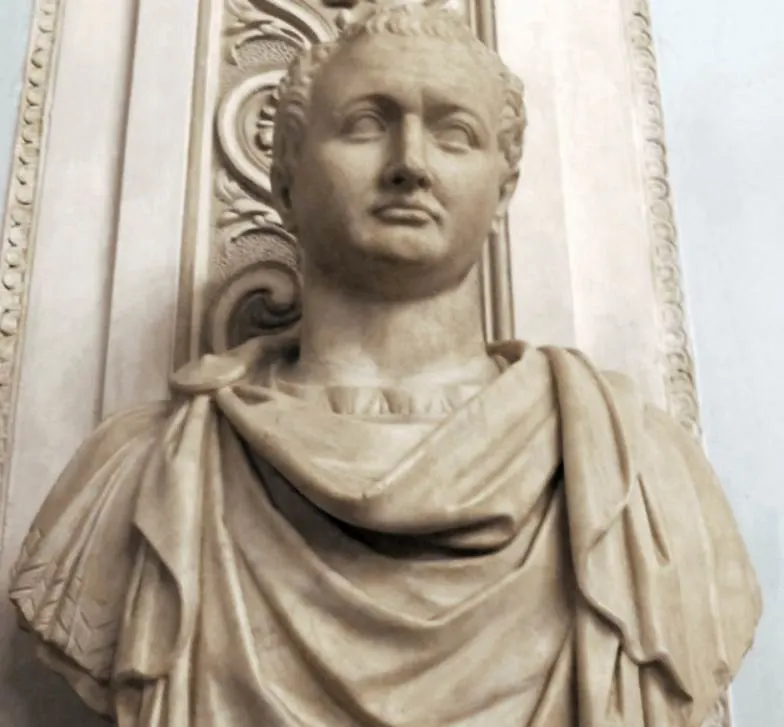
7. He was declared Emperor the day his father died
Vespasian was Emperor for about 10 years and since Titus was his official heir, he was declared Emperor on the very same day his father died, on June 23, 79 A.D.
8. Romans weren’t so sure he would be a good Emperor
Even though Titus was famous for his successful campaign in Judaea and the subsequent sacking of Jerusalem, he had many vices that made Romans wary of his qualities as an Emperor.
There was his ruthless campaign to eliminate any opposition and his affair with a Jewish queen which nobody really appreciated.
All of this didn’t really matter because he followed the footsteps of his father and became a generous and well-liked Emperor, which is attested by all writings about his brief rule.
9. A triumphal arch was constructed in his honor
2 years after his father became Emperor, he was awarded one of Rome’s famous triumphs, a procession through the streets of Ancient Rome in 71 A.D.
Vespasian and his brother, Domitian, were carried through the streets followed by the spoils of Jerusalem, which didn’t just include silver and gold but also thousands of slaves.
This triumph commemorating Titus’ victory in Judaea was eternalized in reliefs on the Arch of Titus, a triumphal arch that is located on the edge of the Roman Forum, the busiest square in the city at the time.
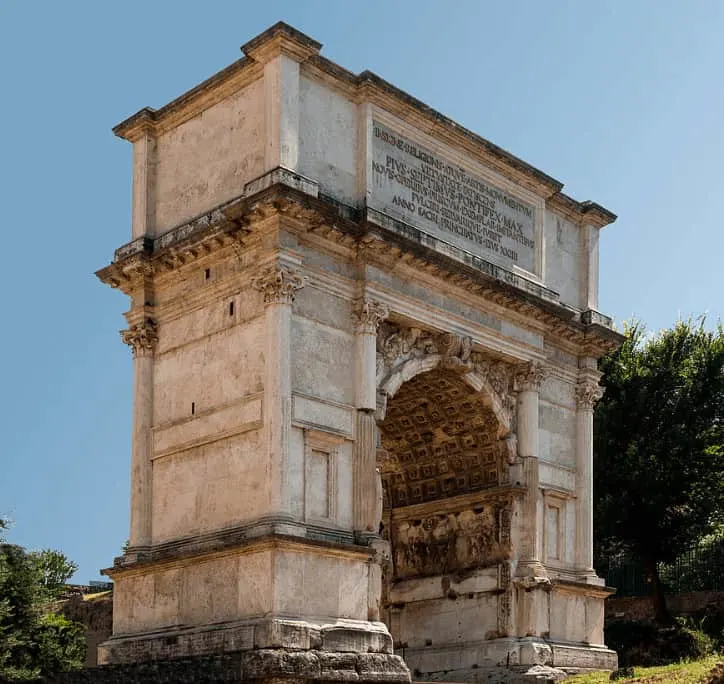
10. His first decision as Emperor was very important
During his father’s rule, he had been on a brutal path of revenge against any possibility of treason. It came as a huge surprise then that his first order as Emperor was to abolish a law to make it possible to have trials based on treason charges.
This resulted in no senators being put to death during his reign, something that happened frequently during the reigns of Caligula, Tiberius, and Nero. He was known for his immense generosity as well.
11. Some serious calamities happened during his reign
Titus would go on to rule the Empire for exactly 2 years, 2 months, and 20 days. During this brief period, he saw some very serious disasters, including the eruption of Mount Vesuvius in 79 A.D.
The cities of Pompeii and Herculaneum were destroyed and thousands of people had lost their lives. Titus responded by arranging a massive relief program for the surviving victims.
Just one year later, a huge fire broke out in Rome which raged for 3 days and 3 nights. Numerous important buildings were destroyed, including the Temple of Jupiter and the Pantheon.
Titus responded again swiftly and helped the people who were affected by this tragic event.
12. He finished the construction of the Flavian Amphitheater
One of the most infamous structures ever built is the Flavian Amphitheater, better known as the “Colosseum.”
It was Vespasian who had started the construction of this massive entertainment venue in the center of Rome on the location where Nero intended to build his own theme park called the “Golden House.” The spoils of Jerusalem and the slaves were used to build it.
10 years after construction started, the Colosseum was finally completed in the year 80 A.D. while Titus was ruling over the Empire.
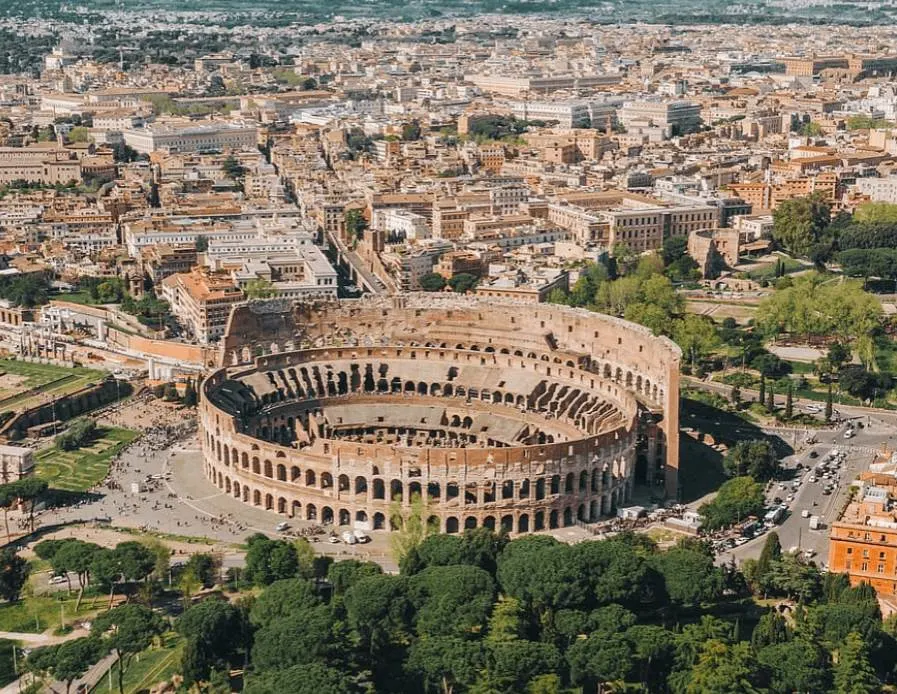
13. The opening games of the Colosseum lasted 100 days
With all these calamities happening in such a short period of time, the ultimate bread and games strategy to keep the Roman mob happy had to be spectacular. Romans couldn’t just enjoy the games for free, they are also given food and drinks for 100 days straight after the Colosseum had opened its doors.
Animal hunting, executions, gladiator fights, and even mock naval battles were staged to provide entertainment. It kept the Romans happy and Titus was loved for it.
14. Was Titus killed by his brother?
He had a good run for just over 2 years, but then he suddenly died of a fever on September 13 of the year 81 A.D. Some historians have speculated that his own brother, Domitian who also succeeded him, was behind the death of his brother.
First of all, Titus’ final words were “I have made but one mistake.” It could be that he was referring to an earlier event in which he discovered Domitian to plot against him to seize power, but had refused to have him executed.
The first act of Domitian after he became Emperor following his brother’s death was to deify him. He also instantly commissioned the construction of the Arch of Titus.
While contemporary historians are divided about whether or not Domitian actually killed his brother or not, they all agree that he left his brother for death without helping him.
15. He was considered to be a good Emperor
For the Romans, Titus was a great Emperor, just as his father Vespasian was. Then again, they filled the footsteps of Nero who was considered to be a psychotic and narcissistic psychopath.
Roman historian Suetonius described Titus as:
The delight and darling of the human race; such surpassing ability had he, by nature, art, or good fortune, to win the affections of all men, and that, too, which is no easy task, while he was emperor.
Suetonius on Titus.
Cassius Dio, who wrote about Titus over 100 years after his death, has the same opinion but is a bit more cautious. He mentioned that:
He ruled with mildness and died at the height of his glory, whereas, if he had lived a long time, it might have been shown that he owes his present fame more to good fortune than to merit.
Cassius Dio on Titus.
Whether this is true, we’ll never know. What we do know is that the overall view of his brief rule was positive for the Senate, the people of Rome, and the Roman Army.
Who didn’t like Titus?
The Jews referred to him as “Titus the Wicked” and remember him as an evil tyrant who destroyed the Second Temple of Jerusalem.
